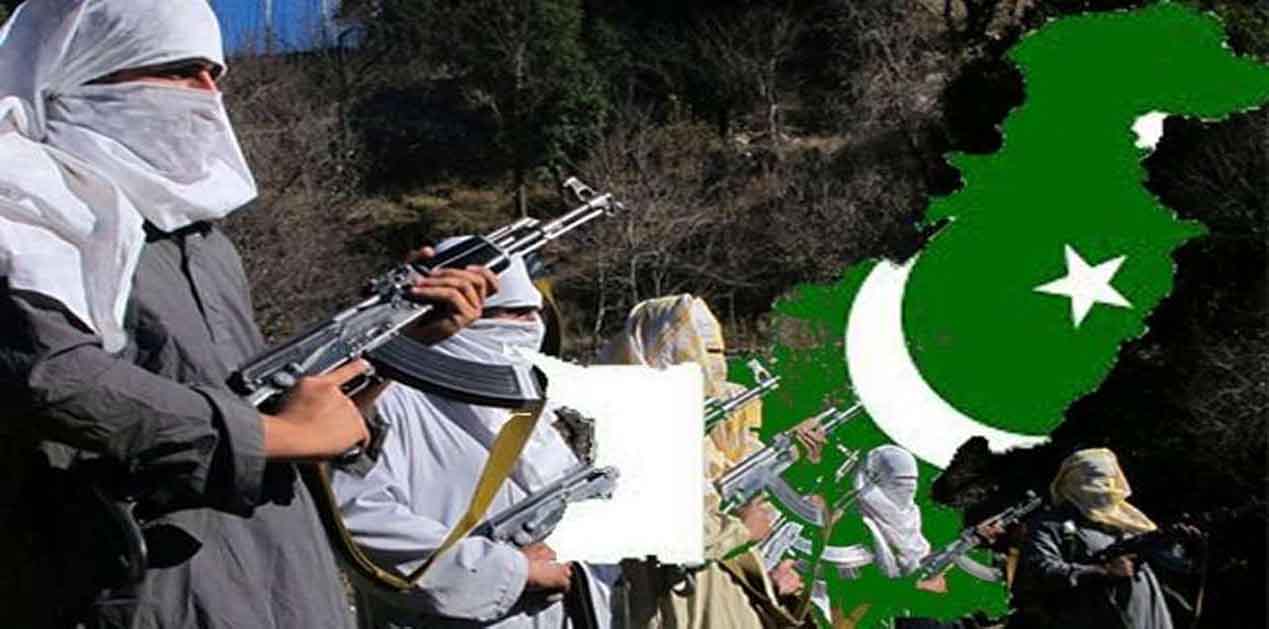A nine-member delegation of the Financial Action Task Force (FATF) paid a 12-day visit to Pakistan from October 8-19. The FATF’s Asia Pacific Group (APG) was a team including experts from US Department of Treasury, British Scotland Yard, People’s Bank of China, Justice Department of Turkey, Financial Intelligence Unit of the Maldives and Indonesian Ministry of Finance. They held meetings with key Pakistani officials from important ministries such as Foreign affairs and Finance to deliberate the compliance of 40 recommendations set by the FATF as well 10-point action plan to be executed by September 2019. The visit was a follow-up on-site mutual inspection to the one which was undertaken two months ago in August.
Pakistan was put in the Grey List in June this year due to series of deficiencies in laws and non-compliance of Anti-money laundering and Countering Financing of Terrorism (AML-CFT) measures. The move was seen as a thrust by the US and its allies to coerce Pakistan to do more to combat terrorism and plug loopholes in money laundering.
FATF not impressed with Pakistan’s efforts
According to media sources, Pakistan’s progress left the visiting delegation unimpressed as deficiencies were found in its legal framework system and the institutional arrangements which are believed to be not robust enough. The mechanism put in place to scrutinize and examine suspicious not-for-profit organizations, exchange companies and corporate houses was flawed. The reason for this was the responsible agencies- Financial Monitoring Unit, National Counter-Terrorism Authority, State Bank of Pakistan, Federal Investigation Agency, Securities and Exchange Commission of Pakistan, Anti-Narcotics Force, Federal Board of Revenue, National Accountability Bureau, Central Directorate of National Saving and local counter-terrorism offices - lacked cooperation and a serious attitude to take initiatives against listed individuals and entities. As a result, the implementation of legal structures failed to take place effectively. Weaknesses were most profound in brokerage houses and absence of documentation of huge transactions from the legal accounts that raised questions about lack of political will. Officials of the Securities and Exchange Commission of Pakistan mentioned how real estate brokerages were outside its area of responsibility since real estate dealers were the channel to register them.
It is believed that concerned authorities have been asked to strengthen their efforts by allotting deadlines for undertaking legit actions so that durable solutions can be reached for a further probe by the FATF in the future.
The delegation has also indicated that the number of donation boxes sited by non-profit and religious organizations at eateries and other important centers has to be noted. Apart from this, currency dealers alongside real estate ones need to document every business transaction. Other recommendations include making agencies more accountable by upgrading them for the purpose of stalling money-laundering, terror-sponsoring and freezing proscribed assets as well as improving existing extradition laws. By January 2019, the Pakistan government has to finish the database of suspected individuals and their outfits in addition to their assets and circumstantial information. Besides, the authorities would have to investigate the financing of terrorist activities and track movement and uses of donations before the lapse of the time period of a year.
The draft report was submitted to the government on November 19. Pakistan was expected to submit an official response within 15 days. Following this, the APG delegation would present its interim report to the FATF in Paris. Next review visit of the delegation is expected in months of March-April 2019 and the report of which could become public three months later.
Federal Investigation Agency’s (FIA) suggestions to PM Imran Khan
The FIA has observed that lackadaisical attitude of government authorities accountable for AML-CFT mechanisms could put Pakistan in more serious troubles. A special report submitted to Imran Khan flagged weaknesses of the departments and other issues which require to be dealt with seriousness. Flaws are most prominent in concerned state departments and sluggish efforts on extradition and mutual legal assistance treaties notwithstanding vigorous laws. A federal entity to scrutinize areas of concern such as telebanking, real estate, and auto-trade is also missing.
The report underlines the need for the implementation of a task force which can operate as a steering committee at the inter-agency level. Suggestions also mention Financial Monitoring Unit which is a key body to combat terror financing and steps to empower it. It had also mentioned that the State Bank of Pakistan must take into consideration that no Suspicious Transaction Report (STR) goes undocumented and non-cooperative commercial banks concerning STRs be penalized.
Hafiz Saeed at ease
Pakistan’s lack of sincerity and commitment was also reflected in recent developments when both of Hafiz Mohammad Saeed's organizations Jamaat-ud-Dawa (JuD) and its charity wing Falah-i-Insaaniyat Foundation (FiF) were taken off the list of banned outfits as the ordinance that proscribed them under a UN resolution lapsed. It is a matter of grave concern for India which had been trying to bring to justice the planners of the 2008 Mumbai attacks. In February this year, this ordinance was promulgated by the former President Mamnoon Hussain which amended the Anti-Terrorism Act, (ATA) 1997, placing them in the list. Article 89 of the Constitution dictates that ordinances promulgated by the President can last only for 120 days.
Hafiz Saeed’s counsel told the Islamabad High Court that the Imran Khan’s government did not do the needful to either extend the ordinance or take it to the assembly to replace it with an act. Hafiz Saeed claimed his detention to be against the sovereignty of Pakistan. Correspondingly, the petitioner claimed that the addition of Section 11-EE and Section 11-B of the ATA is violative of the fundamental rights enshrined in the Constitution. It was further requested to declare them illegal. By disposing off the petition, the judge observed that in case the ordinance comes in effect again, the petitioner has the freedom to file another petition challenging the promulgation of the law.
The National Counter Terrorism Authority had last updated the list of banned organizations in the country on Sept 5 and out of 66 organizations, the two discussed above were not on the list. Nevertheless Section-11-D-(1) of the ATA allows the government to watch over the organizations.
Lately criticizing their removal from the list, the US had asked Pakistan to enact a legislation to proscribe JuD and FiF again. "The expiration of the ban on JuD and FiF runs counter to Pakistan's commitment to work with the Financial Action Task Force (FATF) to address weaknesses in its counter-terrorism financing regime," a State Department spokesperson told PTI.1
Conclusion
In such a scenario the moot point is with an economy so fragile, can Pakistan continue to be non-serious about the FATF? Will the FATF notice Pakistan’s continuing paradoxical attitude to provide sanctuary to terror outfits of the likes of JuD and FiF on one hand and claiming to eliminate terrorism on the other? Will FATF-APG take independent decision to put it in Black List or will China be able to use its diplomatic clout in the FATF to sway decisions in Pakistan’s favour?
In reality, expectations that the international community can have from the FATF’s visits should be tempered with caution since Pakistan has always managed to reach safe harbor after spending tumultuous times with ‘Grey Lists’ It should come as no surprise that during its last inclusion in the List, it not only managed to get a bailout package from the International Monetary Fund but also tapped into the global bond market. So will history repeat itself? Can the FATF’s ‘punitive actions’ against the country be factored in as Pakistan seeks another bailout from the IMF?
References
- PTI, ‘Pakistan must enact legislation to proscribe Hafiz Saeed-led JuD, FIF: US’, The Economic Times, New Delhi, Nov 01, 2018 at https://economictimes.indiatimes.com/news/defence/pakistan-must-enact-legislation-to-proscribe-hafiz-saeed-led-jud-fif-us/articleshow/66460859.cms
Image Source: https://www.geo.tv/assets/uploads/updates/2018-03-15/186569_5671024_updates.jpg










Post new comment